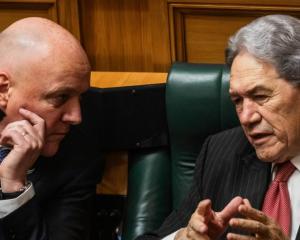The Government will press ahead with its controversial reform of water management, despite widespread rumblings of discontent from councils.
“The case for change is too compelling to ignore,’’ Local Government Minister Nanaia Mahuta said today, announcing the Government will create four publicly-owned entities to manage drinking water, waste water and storm water.
‘‘It is clear that without the establishment of these entities we will continue to see a frail network and contaminated water in many communities,’’ Ms Mahuta said.
‘‘To delay will only push the problem on, increase future household costs and put livelihoods at risk.”
Water management is now in the hands of councils, and several have expressed grave concerns about the Three Waters reforms, calling them an appropriation of local assets by central government.
However, Labour has long campaigned on reforming the water management system and Ms Mahuta said today’s announcement reinforced the Government’s commitment to delivering clean drinking water and fixing and upgrading water-related infrastructure - a cost she put at $185 billion over the next 30 years.
“It would be irresponsible to pour taxpayers’ money into propping up a broken system, or let households face unprecedented rises in water costs,’’ Ms Mahuta said.
‘‘Currently 43 of the 67 councils do not have the revenue to cover their water services operating expenditures at the moment, let alone once the infrastructure starts failing.’’

“We will continue to work with councils and ensure that local participation is evident in the critical next phase.’’
A working group, comprised of local government, iwi and water industry experts, would be set up to help design the new organisation.
The Government plans for water to be managed by four regional organisations:
- A will cover Northland and Auckland
- B the central North Island
- C the East Coast, Wellington and Nelson Marlborough
- D the rest of the South Island.
The Water Services Entities Bill is expected to be introduced into Parliament in early December, and the new system is expected to be in operation by July 2024.
Clutha District Mayor Bryan Cadogan said he was disappointed but resigned to the fact that the Government had little choice but to move ahead with its plans.
‘‘It would have been quite a battle to resolve anything otherwise, due to the level of disinformation and poison that has contaminated this process.’’
While dismayed that he would not be able to have a conversation about water management with his local community, Mr Cadogan was pleased that the Government planned to allow some input from local government on the final shape of the plans.
‘‘We need some time now for the dust to settle and for use to work out just what this means for our communities.’’
- Staff reporter













